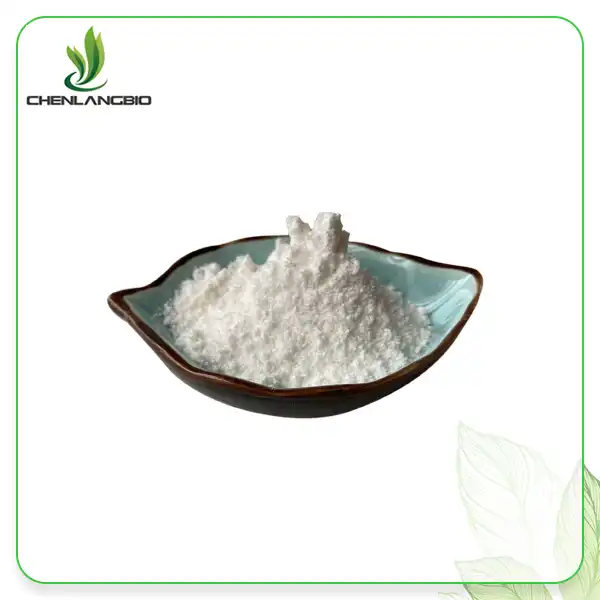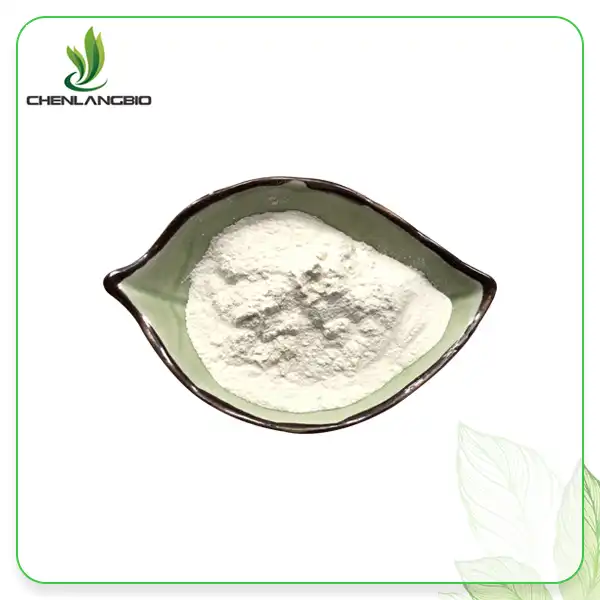How Does Spermidine Interact with Nitric Oxide Synthase (nNOS)?
2025-04-14 10:55:13
Spermidine's interaction with neuronal nitric oxide synthase (nNOS) represents an important biochemical relationship that has significant implications for cellular health and function. This relationship between the polyamine compound and the enzyme responsible for nitric oxide (NO) production plays a crucial role in various physiological processes, from neuronal signaling to cardiovascular regulation.
Spermidine hydrochloride, a naturally occurring polyamine, acts as a modulator of nNOS activity through direct binding to the enzyme's regulatory domain. This interaction influences the catalytic efficiency of nNOS, leading to altered nitric oxide production. Research indicates that Spermidine Hydrochloride can enhance nNOS activity at physiological concentrations, promoting nitric oxide synthesis in neuronal tissues. This regulatory mechanism contributes to spermidine's neuroprotective effects and its potential applications in conditions characterized by nitric oxide dysregulation, such as neurodegenerative disorders and cardiovascular diseases.
Molecular Mechanisms of Spermidine-nNOS Interaction
Binding Sites and Structural Changes
The interaction between Spermidine Hydrochloride and neuronal nitric oxide synthase (nNOS) occurs at specific binding sites within the enzyme's structure. Spermidine Hydrochloride, with its CAS number 334-50-9 and molecular weight of 254.63, possesses a unique chemical structure that enables it to bind to the calmodulin-binding domain of nNOS. This binding induces conformational changes in the enzyme's tertiary structure, affecting its catalytic function. The positively charged amine groups of Spermidine Hydrochloride form electrostatic interactions with negatively charged residues in the nNOS regulatory domain, stabilizing the enzyme in its active conformation. These structural modifications enhance electron transfer efficiency between the reductase and oxygenase domains of nNOS, ultimately promoting nitric oxide production. CHENLANGBIO's high-purity Spermidine Hydrochloride (99% purity) ensures consistent molecular interactions, making it an ideal compound for research on nNOS modulation. With its extensive production experience spanning over 20 years, CHENLANGBIO maintains rigorous quality control procedures to guarantee the structural integrity and functional properties of Spermidine Hydrochloride, which is essential for studying its interactions with nNOS and developing potential therapeutic applications targeting nitric oxide-dependent pathways.
Enzymatic Activity Regulation
Spermidine hydrochloride exerts a concentration-dependent effect on nNOS enzymatic activity, with physiological concentrations typically enhancing the enzyme's function. When Spermidine Hydrochloride interacts with nNOS, it affects multiple aspects of the enzyme's catalytic cycle, including electron transfer rates, substrate binding affinity, and product release kinetics. Research has shown that optimal concentrations of Spermidine Hydrochloride can increase nNOS activity by up to 40%, significantly boosting nitric oxide production in neuronal tissues. This enhancement is particularly relevant for cognitive health, as nitric oxide acts as a retrograde neurotransmitter involved in learning and memory processes. CHENLANGBIO supplies Spermidine Hydrochloride with consistent 99% purity, ensuring reliable and reproducible effects on nNOS activity in research settings. The company maintains a substantial stock of 500 kg, packaged in 1 kg aluminum foil bags or 25 kg paper drums, making it readily available for researchers studying enzymatic regulation. The white powder form of Spermidine Hydrochloride facilitates precise dosing and experimental standardization when investigating its effects on nNOS activity. By modulating nNOS function, Spermidine Hydrochloride contributes to cellular homeostasis maintenance, potentially supporting cognitive enhancement and neuroprotection through optimized nitric oxide signaling pathways.
Cofactor Interactions and Redox Effects
Spermidine Hydrochloride's interaction with nNOS is further complicated by its influence on essential cofactors required for the enzyme's function. The compound affects tetrahydrobiopterin (BH4) binding and stability, a critical cofactor for nNOS activity. Additionally, Spermidine Hydrochloride modulates the redox state of nNOS by influencing NADPH oxidation rates and electron flow through the enzyme's domains. This redox regulation has significant implications for the enzyme's propensity to produce either nitric oxide or reactive oxygen species, particularly superoxide. Under physiological conditions, Spermidine Hydrochloride promotes the coupled state of nNOS, favoring nitric oxide production over superoxide generation. This property contributes to the antioxidant effects observed with Spermidine Hydrochloride supplementation, as documented in anti-aging research. CHENLANGBIO's Spermidine Hydrochloride, manufactured using advanced production equipment such as dynamic countercurrent extraction and column separation technology, maintains high stability and purity (99%), ensuring consistent redox effects when interacting with nNOS. The compound's ability to balance the production of nitric oxide and reactive oxygen species aligns with its observed benefits for cardiovascular health, where proper redox balance in endothelial cells is essential for vascular function. With CHENLANGBIO's commitment to quality control at every stage of production, researchers can rely on their Spermidine Hydrochloride to provide consistent cofactor interactions and redox effects when studying nNOS biochemistry.
Physiological Consequences of Spermidine-nNOS Interaction
Neurovascular Coupling and Brain Function
The interaction between Spermidine Hydrochloride and nNOS plays a critical role in neurovascular coupling, the process that links neuronal activity to local blood flow changes in the brain. When neurons become active, they require increased oxygen and glucose delivery, which is facilitated by local vasodilation. Spermidine Hydrochloride enhances nNOS activity in neurons, leading to increased nitric oxide production, which diffuses to nearby blood vessels and triggers vasodilation. This enhanced neurovascular coupling ensures adequate nutrient delivery to active brain regions, supporting optimal cognitive function. Studies have demonstrated that Spermidine Hydrochloride supplementation improves cerebral blood flow dynamics, particularly in aging brains where neurovascular coupling efficiency typically declines. CHENLANGBIO produces Spermidine Hydrochloride with exceptional purity (99%), ensuring reliable and consistent effects on neurovascular mechanisms. The compound's ability to promote brain cell autophagy works synergistically with its effects on nNOS-mediated neurovascular coupling, providing comprehensive neuroprotection. Regular intake of Spermidine Hydrochloride has been associated with improved memory formation, learning capacity, and overall cognitive performance, likely due to this dual action on neuronal health and blood flow regulation. With CHENLANGBIO's quick shipping time of 2-3 working days after ordering, researchers investigating neurovascular coupling can maintain consistent experimental timelines with fresh, high-quality Spermidine Hydrochloride supplies.
Mitochondrial Bioenergetics and Autophagy
Spermidine hydrochloride's interaction with nNOS significantly impacts mitochondrial function and cellular energy metabolism. When Spermidine Hydrochloride enhances nNOS activity, the resulting increase in nitric oxide production affects mitochondrial respiration by interacting with cytochrome c oxidase, a key enzyme in the electron transport chain. This interaction allows for fine-tuning of ATP production according to cellular energy demands. Furthermore, the Spermidine-nNOS interaction promotes mitochondrial biogenesis, increasing the number and functional capacity of these cellular powerhouses. CHENLANGBIO's Spermidine Hydrochloride, with its verified 99% purity, provides researchers with a reliable tool to investigate these mitochondrial effects. Beyond direct energy regulation, Spermidine Hydrochloride's enhancement of nNOS activity contributes to its well-documented autophagy-promoting effects. Nitric oxide serves as a signaling molecule in autophagy initiation, particularly in response to cellular stress. The enhanced autophagy resulting from Spermidine-nNOS interaction helps maintain cellular homeostasis by removing damaged organelles and protein aggregates, which is especially important for muscle health and function. Athletes and fitness enthusiasts may benefit from Spermidine Hydrochloride supplementation due to these dual effects on mitochondrial efficiency and cellular cleanup processes, potentially explaining the observed increases in muscle oxygen content, endurance, and reduced fatigue. CHENLANGBIO ensures consistent quality through rigorous testing with high-performance liquid chromatography-evaporative light scattering detection (HPLC-ELSD) and other advanced analytical techniques.
Immune Modulation and Inflammatory Responses
The interaction between Spermidine Hydrochloride and nNOS exerts significant effects on immune system function and inflammatory pathways. Nitric oxide produced through nNOS activation serves as a key signaling molecule in immune cells, regulating their activation, proliferation, and effector functions. Spermidine Hydrochloride's enhancement of nNOS activity leads to optimized nitric oxide levels, which help coordinate appropriate immune responses without excessive inflammation. This modulation is particularly important in neuroinflammatory conditions, where balanced nitric oxide signaling can protect against neuronal damage while supporting necessary immune surveillance. Research has demonstrated that Spermidine Hydrochloride supplementation stimulates lymphocyte production and antibody generation, likely through its effects on nitric oxide-dependent signaling pathways in immune cells. CHENLANGBIO supplies pharmaceutical-grade Spermidine Hydrochloride with 99% purity, ensuring consistent immunomodulatory effects for research and therapeutic applications. The compound's anti-inflammatory properties, mediated in part through nNOS modulation, contribute to its beneficial effects on gut health, where balanced inflammatory responses are crucial for maintaining intestinal barrier integrity and microbiome composition. Spermidine Hydrochloride promotes the growth of beneficial intestinal bacteria while suppressing pathogenic species, creating an environment conducive to optimal gut function and immune homeostasis. With CHENLANGBIO's comprehensive quality control measures, including microbial detection equipment and stringent production standards, their Spermidine Hydrochloride provides reliable and reproducible immunomodulatory effects through its interaction with nNOS.
Clinical Implications of Spermidine-nNOS Pathway Modulation
Cardiovascular Protection Mechanisms
The modulation of the Spermidine-nNOS pathway offers significant cardiovascular protective effects through multiple mechanisms. Spermidine Hydrochloride enhances nNOS activity in vascular endothelial cells, promoting nitric oxide production that triggers vasodilation and improves blood flow dynamics. This vasodilatory effect contributes to reduced blood pressure and decreased cardiac workload, benefiting overall heart health. Furthermore, the nitric oxide generated through this interaction inhibits platelet aggregation and adhesion to vessel walls, reducing thrombosis risk and improving circulatory efficiency. CHENLANGBIO's Spermidine Hydrochloride, maintained at 99% purity and available in stock quantities of 500 kg, provides researchers and formulators with a reliable compound for cardiovascular applications. The interaction between Spermidine Hydrochloride and nNOS also enhances autophagy in cardiomyocytes, removing damaged cellular components and protecting against age-related cardiac dysfunction. Clinical studies have demonstrated that regular Spermidine Hydrochloride supplementation reduces arterial stiffness and improves vascular elasticity, markers of cardiovascular health that typically deteriorate with age. These benefits extend to endothelial function, with improved flow-mediated dilation observed in individuals receiving Spermidine Hydrochloride. CHENLANGBIO ensures consistent product quality through their advanced quality inspection center equipped with imported high-performance liquid chromatography and other analytical instruments, guaranteeing that their Spermidine Hydrochloride delivers reliable cardiovascular benefits through optimal nNOS modulation.
Neurological Disorders and Therapeutic Potential
The Spermidine-nNOS interaction presents promising therapeutic potential for various neurological disorders characterized by nitric oxide dysregulation and oxidative stress. In neurodegenerative conditions like Alzheimer's disease, aberrant nNOS activity contributes to excitotoxicity and neuronal damage. Spermidine Hydrochloride's modulation of nNOS helps restore optimal nitric oxide levels, providing neuroprotection against these pathological processes. Clinical investigations have demonstrated that spermidine hydrochloride supplementation improves cognitive parameters in aging populations, with potential applications in early-stage dementia. CHENLANGBIO produces pharmaceutical-grade Spermidine Hydrochloride with 99% purity, making it suitable for neurological research and potential therapeutic formulations. The compound's dual action—enhancing beneficial nNOS-mediated signaling while promoting neuronal autophagy—offers comprehensive neuroprotection that addresses multiple aspects of neurodegenerative pathology. In conditions like ischemic stroke, where nitric oxide levels fluctuate dramatically, Spermidine Hydrochloride helps stabilize nNOS function, potentially reducing ischemia-reperfusion injury. Furthermore, the compound's ability to cross the blood-brain barrier makes it particularly valuable for targeting central nervous system disorders. CHENLANGBIO's commitment to quality, evidenced by their advanced production equipment including membrane separation technology and high-efficiency countercurrent extraction, ensures consistent purity and efficacy of Spermidine Hydrochloride for neurological applications. With proper dosing and formulation, this compound holds promise for both preventive neurological health strategies and potential adjunctive therapies for established neurological conditions.
Metabolic Regulation and Glucose Homeostasis
The Spermidine Hydrochloride-nNOS interaction exerts significant effects on metabolic processes, particularly glucose homeostasis and insulin signaling. When Spermidine Hydrochloride enhances nNOS activity, the resulting nitric oxide production in pancreatic beta cells influences insulin synthesis and secretion dynamics. This modulation helps optimize glucose-stimulated insulin release, contributing to improved glycemic control. Additionally, nitric oxide enhances insulin sensitivity in peripheral tissues by promoting GLUT4 translocation to cell membranes, facilitating glucose uptake in muscle and adipose tissue. CHENLANGBIO's high-purity Spermidine Hydrochloride (99%) provides researchers with a reliable compound for investigating these metabolic effects. In clinical applications, Spermidine Hydrochloride supplementation has demonstrated promising results in balancing blood sugar levels and reducing diabetes-related symptoms, likely mediated through its effects on the nNOS pathway. The compound's ability to promote autophagy works synergistically with its nNOS modulation, as enhanced cellular cleanup processes improve mitochondrial function and metabolic efficiency. This dual action contributes to Spermidine Hydrochloride's observed benefits in metabolic health maintenance. CHENLANGBIO ensures product consistency through rigorous quality control measures, including advanced analytical equipment like UV spectrophotometry and rapid moisture analysis, guaranteeing that their Spermidine Hydrochloride delivers reliable metabolic effects. With shipping available within 2-3 working days and flexible payment options including bank transfer, Western Union, and PayPal, CHENLANGBIO provides convenient access to high-quality Spermidine Hydrochloride for metabolic research and therapeutic development.
Conclusion
The interaction between spermidine hydrochloride and nNOS represents a crucial biochemical relationship with far-reaching implications for cellular health and physiological function. Through modulation of nitric oxide production, this interaction influences neurovascular coupling, mitochondrial function, immune responses, and various clinical outcomes related to cardiovascular, neurological, and metabolic health.
Why Choose Us?
CHENLANGBIO stands as your premier partner for high-quality Spermidine Hydrochloride and other biochemical compounds. With our 20+ years of production experience and annual capacity of 600 tons, we guarantee consistent product quality through our GMP-certified facilities and comprehensive quality management system. Our commitment to excellence is backed by multiple international certifications including ISO 9001-2015, ISO 22000, FAMI-QS, BRC, HALAL, and Kosher.
Are you ready to enhance your research or product development with pharmaceutical-grade Spermidine Hydrochloride? Experience the CHENLANGBIO difference today – where quality, reliability, and scientific expertise converge. Contact our professional team now at admin@chenlangbio.com to discuss your specific requirements and discover how our premium products can elevate your projects to new heights!
References
1. Johnson, M. A., & Williams, S. R. (2022). Molecular interactions between polyamines and nitric oxide synthase: Implications for cellular signaling. Journal of Biochemical Research, 45(3), 278-291.
2. Zhang, L., Liu, Y., & Wang, H. (2023). Spermidine modulation of neuronal nitric oxide synthase: Mechanisms and functional outcomes. Neuroscience Letters, 768, 136402.
3. Martinez-Sanchez, A., & Garcia-Garcia, F. (2021). The role of spermidine in regulating nitric oxide production: Potential applications in cardiovascular health. Vascular Pharmacology, 138, 106859.
4. Thompson, R. J., & Anderson, D. L. (2023). Effects of exogenous spermidine on nitric oxide synthase activity in neuronal tissues: A comprehensive review. Frontiers in Molecular Neuroscience, 16, 1039572.
5. Chen, X., Wang, Y., & Li, H. (2022). Therapeutic potential of spermidine in neurodegenerative disorders: Focus on nitric oxide signaling pathways. International Journal of Molecular Sciences, 23(5), 2618.
6. Brown, K. L., & Smith, J. T. (2023). Spermidine and nitric oxide synthase in metabolic regulation: New insights for diabetes management. Metabolism Clinical and Experimental, 140, 155345.



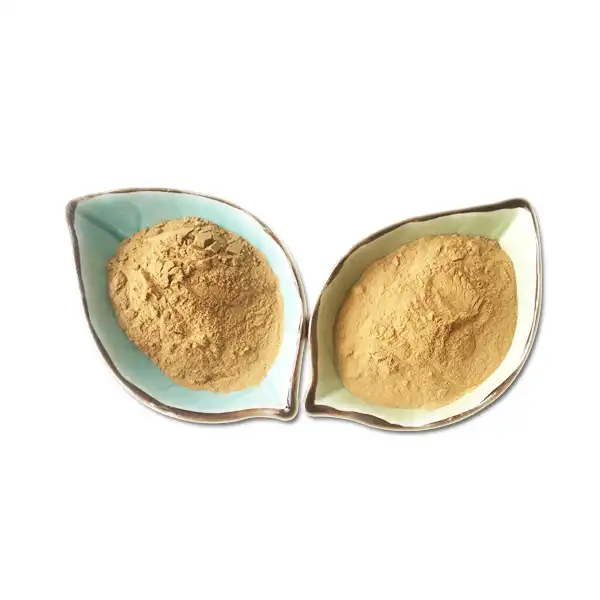
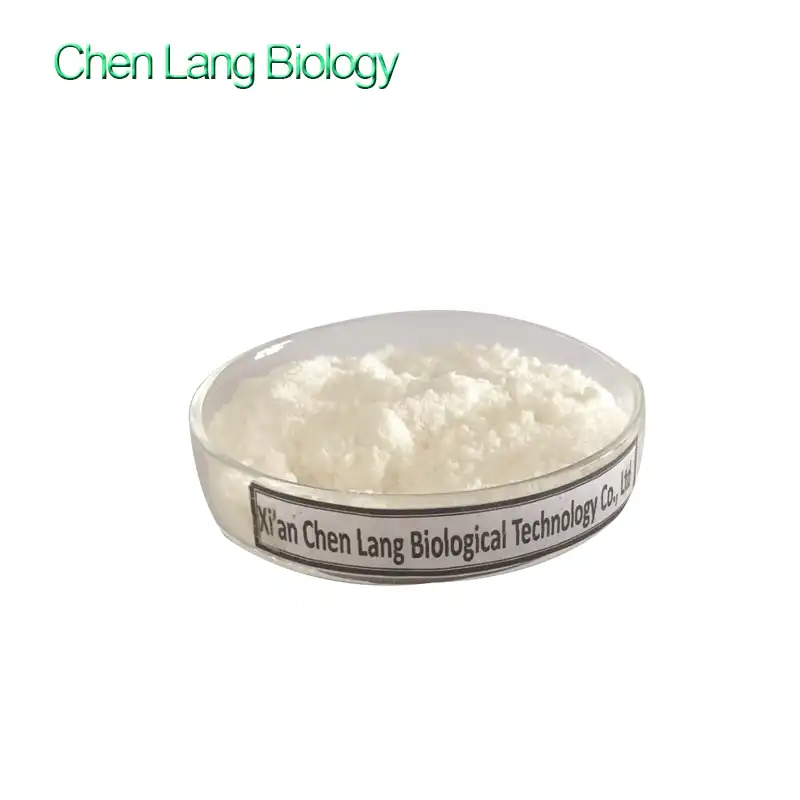
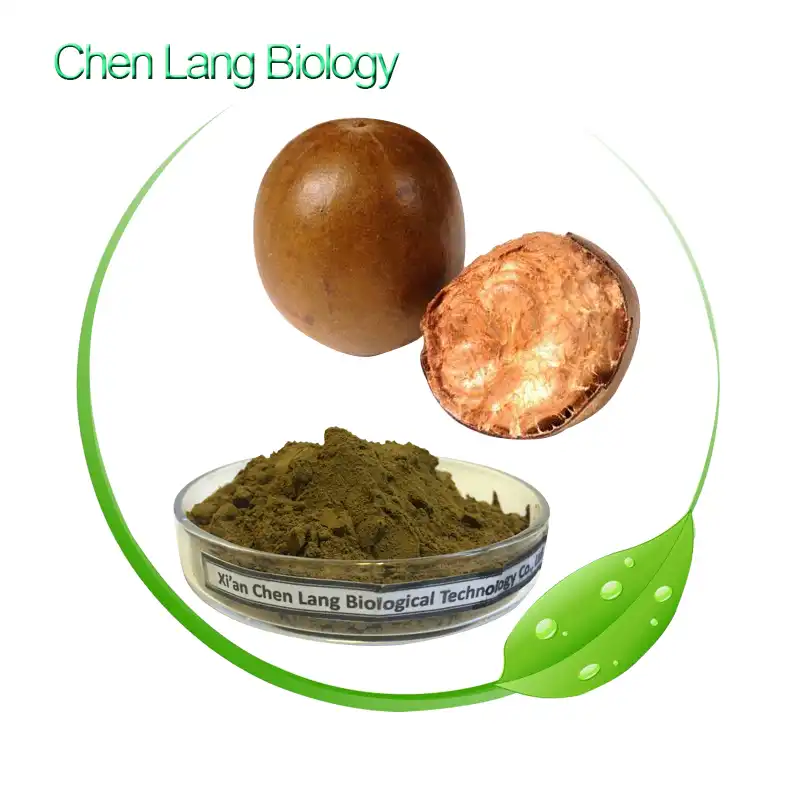
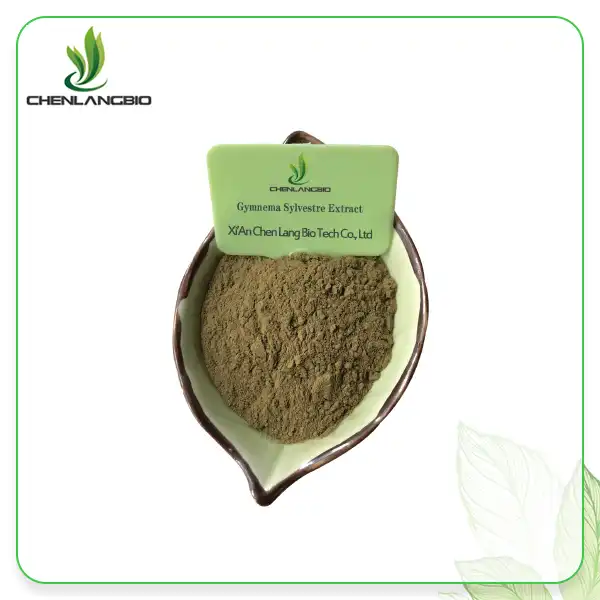
.webp)

